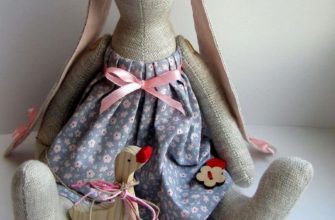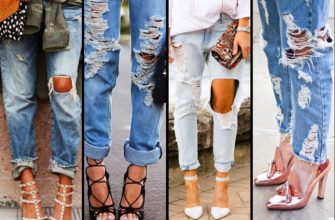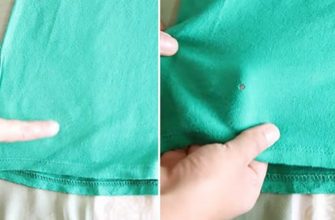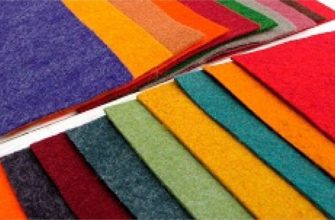Pillows are an indispensable accessory for any modern home. This article is for those who are determined to make them with their own hands.
- Materials and tools
- Colors
- DIY Soft Toys from Fabric
- Herodotus the Cat - a pillow for the road
- Sleeping Kitten Pillow
- Bright floor pillow
- Pillows with images of cats
- Pattern of a pillow toy Hare
- DIY Animal Pillows Patterns
- Stuffing
- Methods of decorating pillows
- Using bows
- Placement of frills
- Decor with flowers
- Decor with embroidery
- Applications
Materials and tools
When starting a new job, every craftswoman thinks about what to use.
Items you may need:
- Fabrics (preference should be given to specialized fabrics: plush, felt, denim, fleece, upholstery).
- A sheet of thermal transfer paper containing an image (sold in photo stores).
- Inner pillow, purchased in advance or made by hand (35-40 cm side).
- Sewing machine (speeds up work).
- Iron (translates the image).
- Threads in the color of the fabric (thickness from 40 helps to create a strong product).
- Tailor's measuring tape, ruler.
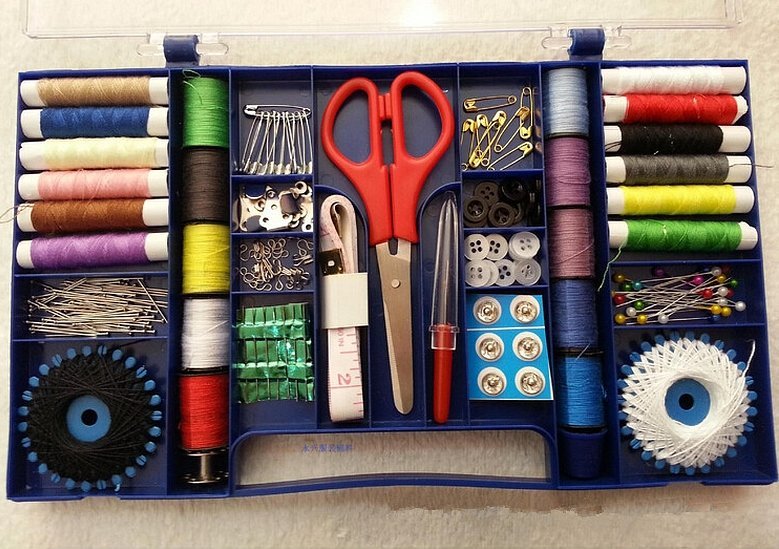
- Scissors.
- Pins.
- Tracing paper.
- Pencil.
- A sharpened piece of soap or chalk.
- Several needles.
- Decorations (braid, lace, ribbon of various colors, buckles, zippers, laces, buttons). Wool thread, floss threads will help to decorate seams and make tassels.
Colors
The style of the interior dictates preferences in the choice of color, style, and fabric of the product.
Possible options:
- Selection of a color tone that matches the furniture and accessories of the room.
- Sewing a cover of the main color palette of the room.
- Combination of the color of the thought with one of the accent colors.
The most interesting choice: matching the tone of the material of the pillows and curtains.
An accent to the monochrome of the room can be a combination of the color of the pillows and a bright carpet.
The color of the product may repeat the color of the wallpaper pattern.
Important! The color of the product cover should not repeat the color of the sofa upholstery - a darker or lighter tone is preferable.
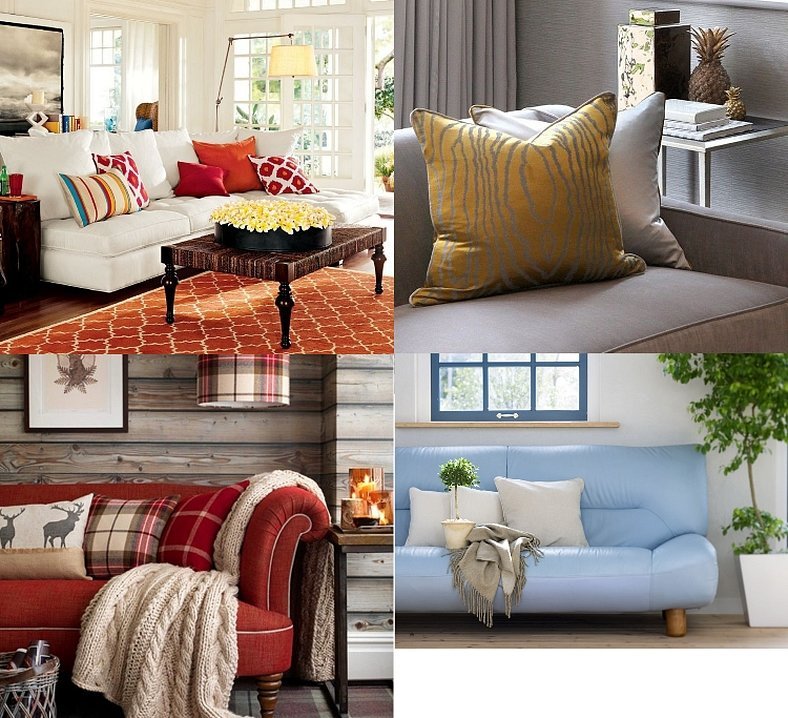
DIY Soft Toys from Fabric
Below are DIY children's pillows, original author's patterns.
Herodotus the Cat - a pillow for the road
This miracle pillow can not only become the highlight of the interior, decorating it, delighting children, but also serve as amazing support for tired cervical vertebrae.
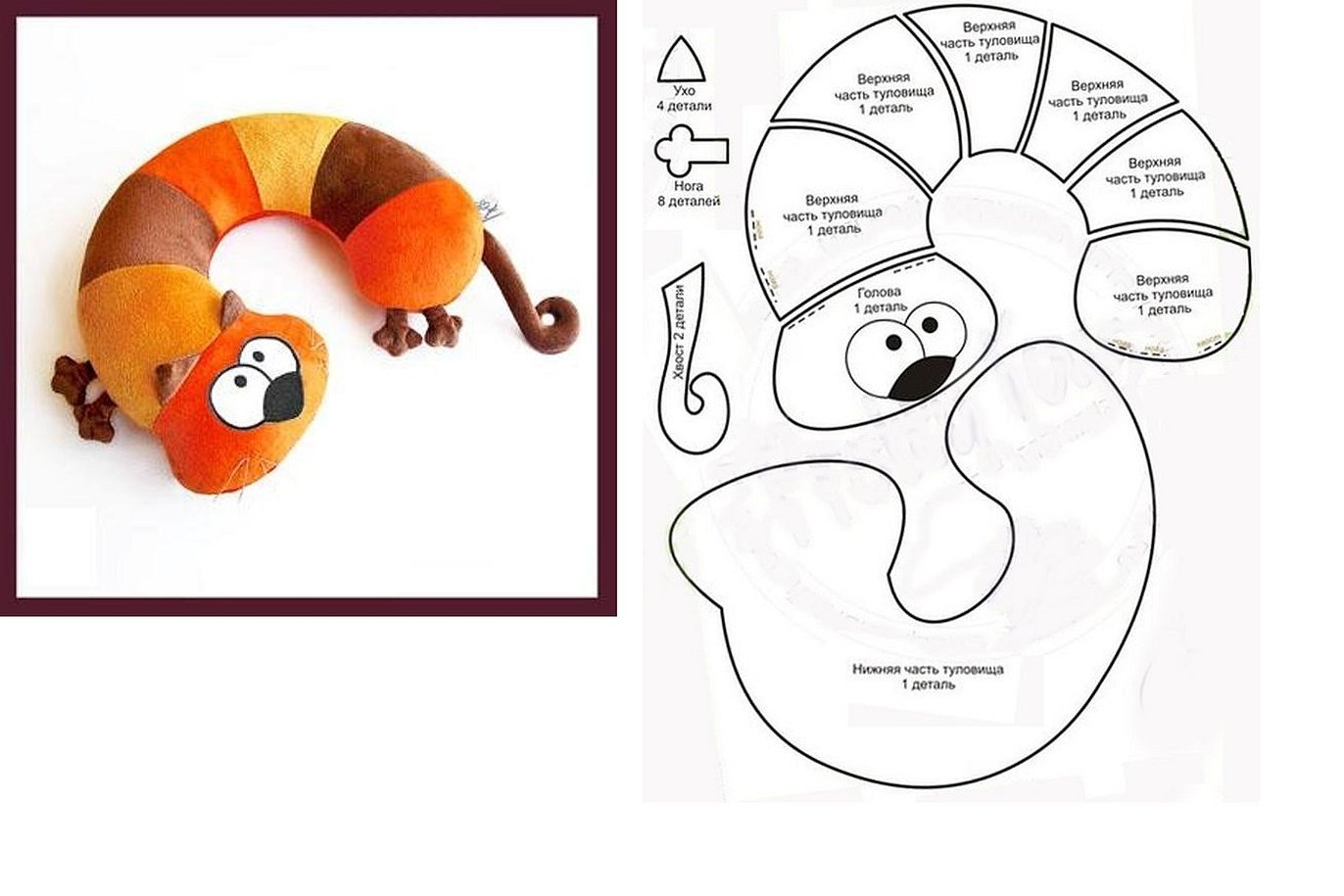
Preferred fabric: fleece (two colors); felt (for decoration purposes).
- A pattern is created on tracing paper.
- It is transferred to the material with allowances.
- Fold inside out, pin and sew.
- It turns out through the remaining gap.
- Filled with filler.
- It is being decorated.
Important! When making a mustache, you should avoid using raffia (the finished pad is prickly and ticklish), it is preferable to draw them with an outline, create them using floss threads.
Size of the final product: the diameter to the outer edge is 43-45 cm, to the inner edge – 13-15 cm.
Sleeping Kitten Pillow
Do-it-yourself sleepy pillows, the patterns of which are very popular with young mothers, are great for newborns' beds. Making a pillow with your own hands gives you the opportunity to choose a really high-quality material at an affordable cost.
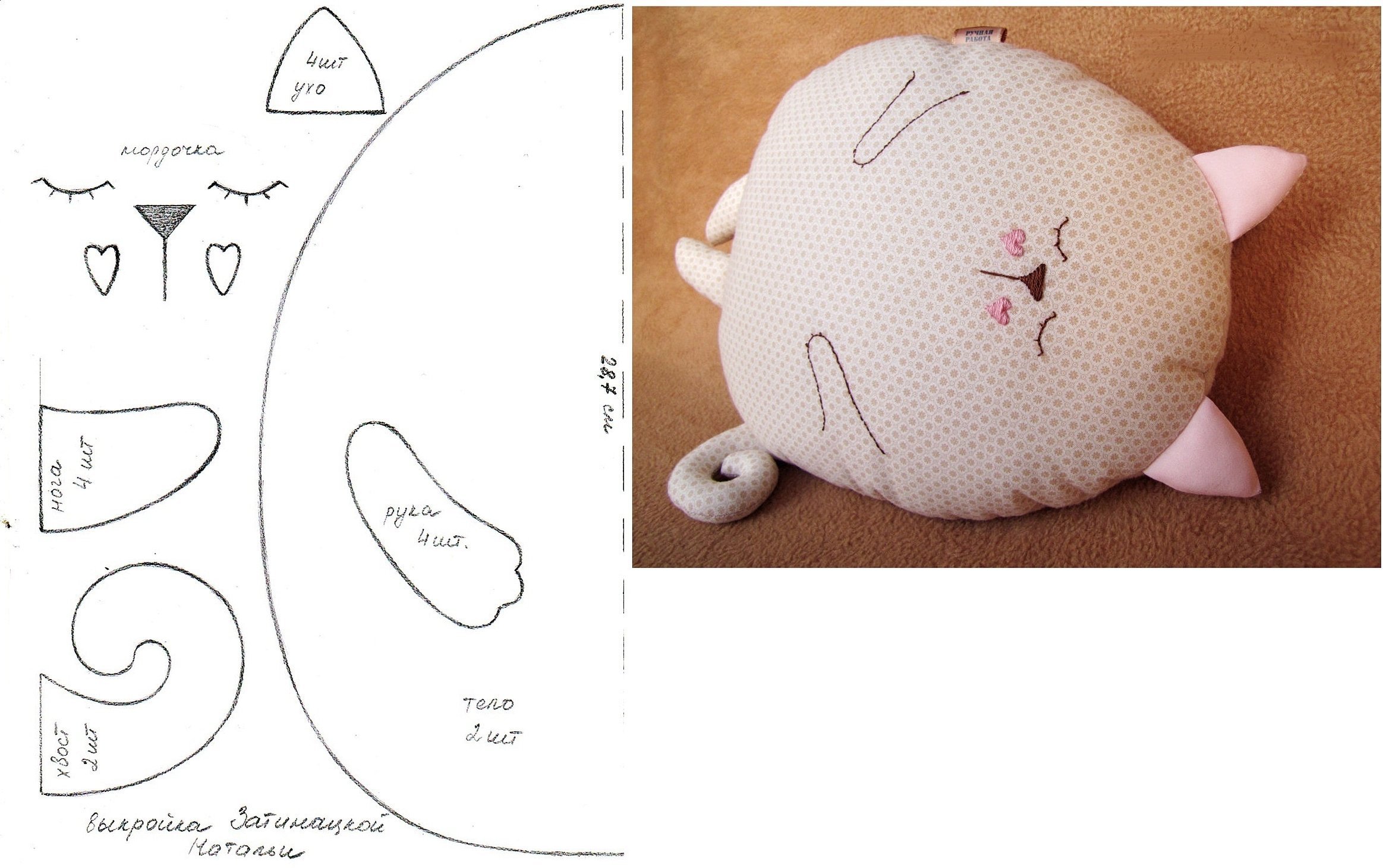
Bright floor pillow
Such decorative elements adorn the homes of Chinese, Japanese, Indians, Arabs and Muslims, and are gaining popularity in Western countries (Lounge style), creating a more relaxed atmosphere.
Advantages:
- The room design will become more original.
- Possibility of easy redevelopment.
- Children's concern.
- Ease of execution.
- Ease of operation.
- Exclusivity.
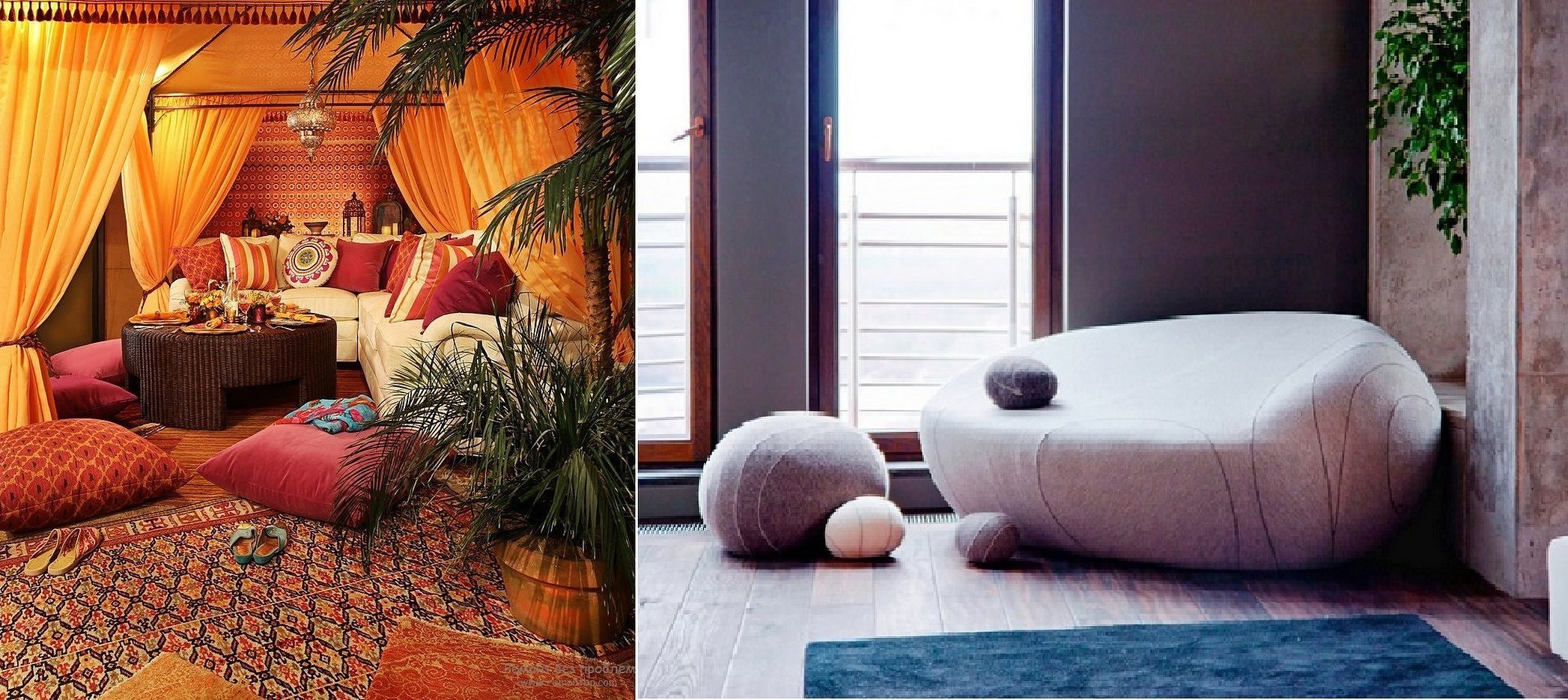
Manufacturing:
- Draw sketches of the parts on cardboard.
- Cut out templates.
- Pin the stamp to the fabric and trim it, creating an allowance for seams.
- Machine stitch, keeping the opening.
- Turn inside out and fill with polypropylene.
- Sew the opening, decorate.
Application styles: Provence, country, Scandinavian style, minimalism, high-tech.
Pillows with images of cats
- The easiest, most reliable, and most effective way to transfer an image onto fabric is to use thermal transfer paper. It is selected based on the type of printer (inkjet, laser), fabric color (light, dark), and size.
The transferred pattern is cut out with a reserve of a couple of centimeters, placed on the fabric with the checkered side up, and ironed (upper temperature limit, without steaming). After cooling, the checkered layer is carefully peeled off.
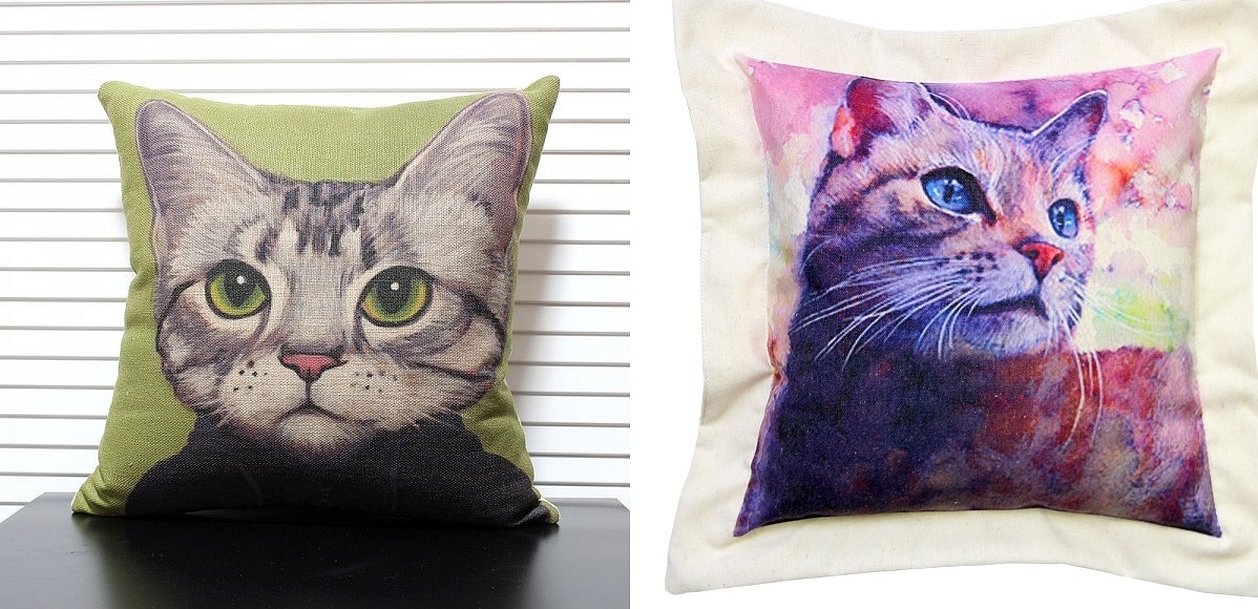
- Direct application of a design to fabric using an inkjet printer is possible. Before this, the material is starched hard (2 tablespoons per liter of liquid), dried without clothespins, ironed dry, dried again, and inserted into the printer. The finished image holds up well.
Pattern of a pillow toy Hare
The bunny dumochka is easy to sew and will add originality and warmth to your home interior. It is easy to sew using the pattern presented above.
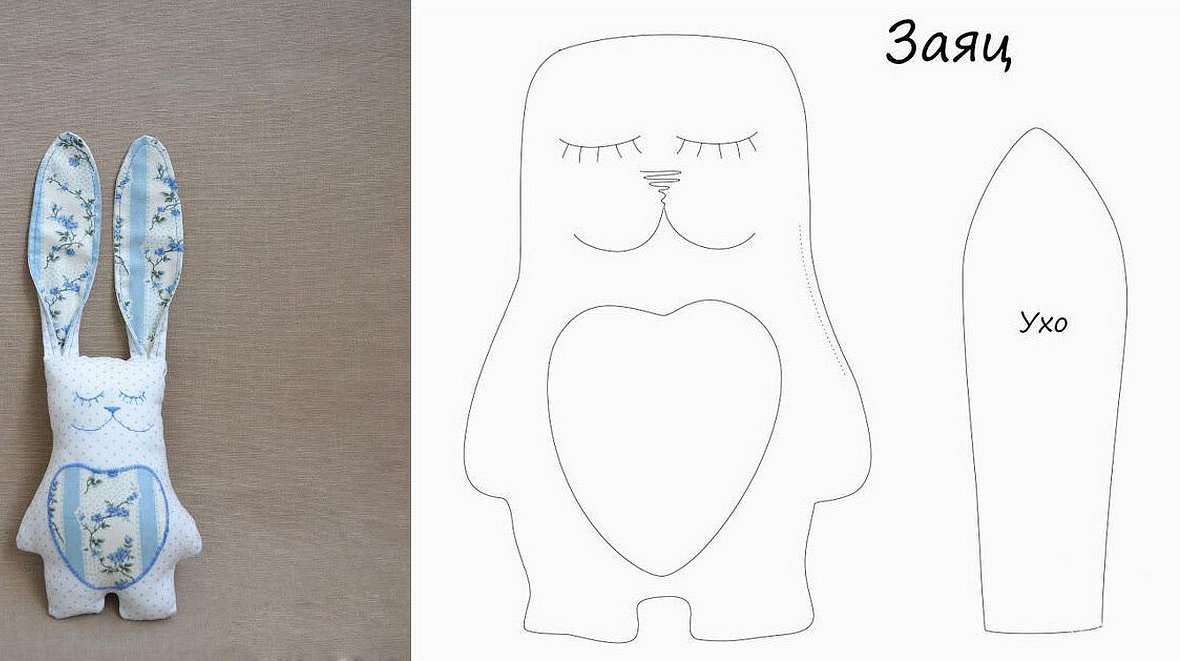
DIY Animal Pillows Patterns
Patterns for animal pillows are indispensable for beginning craftswomen.
People who spend a lot of time working on a computer with a mouse and keyboard develop carpal tunnel syndrome. You can avoid it by sewing a pad for your wrist from two rectangles filled with rice.
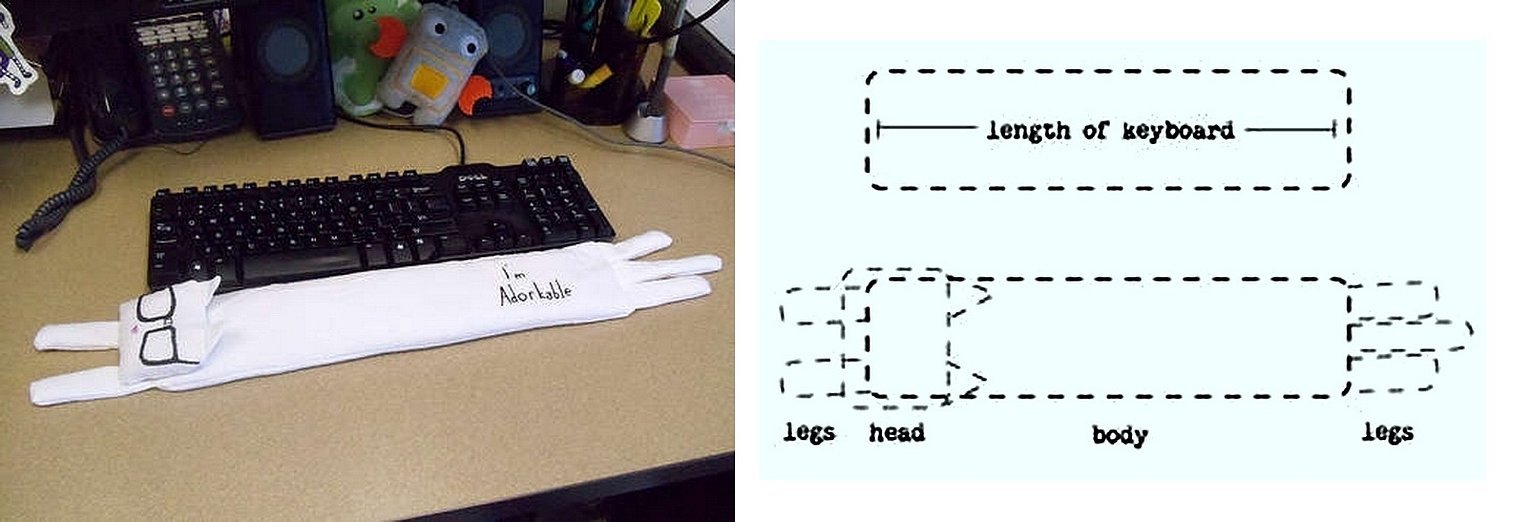
The pig from Smeshariki will perfectly complement the interior of a child's room and will cause genuine delight in the little household members.
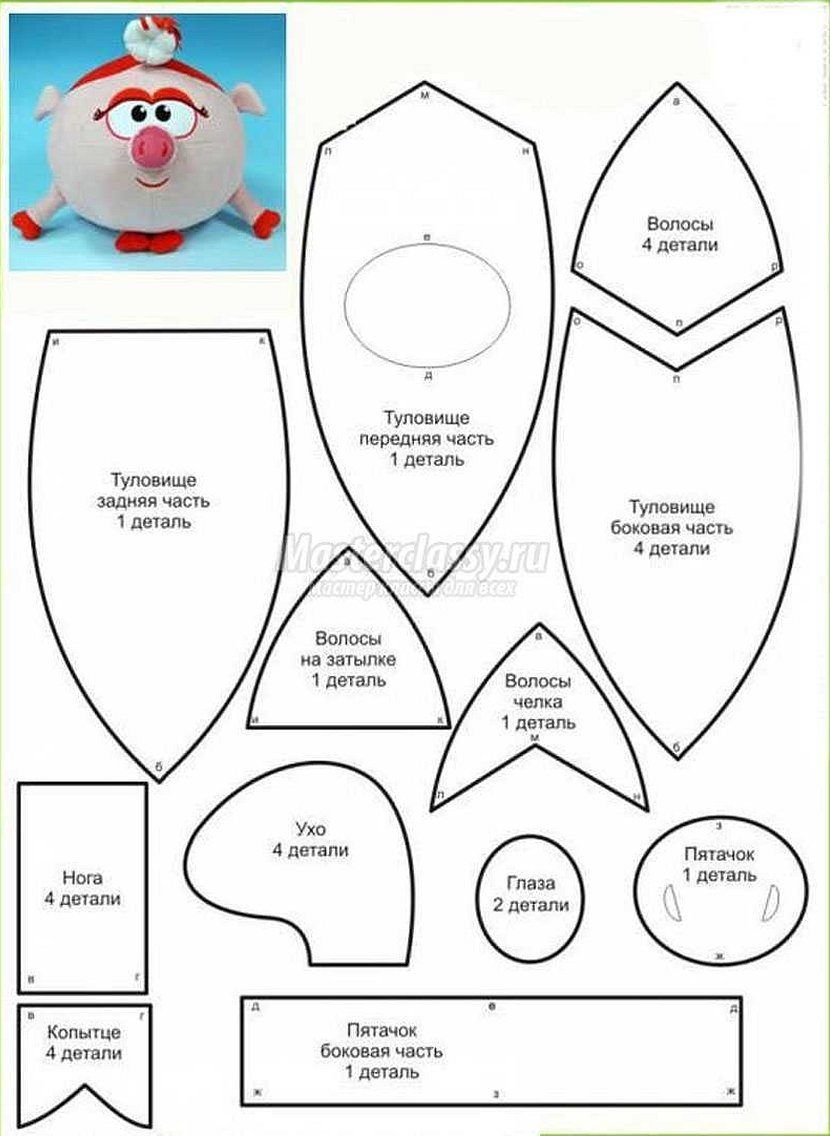
A simple owl pillow will be a great toy for any child.
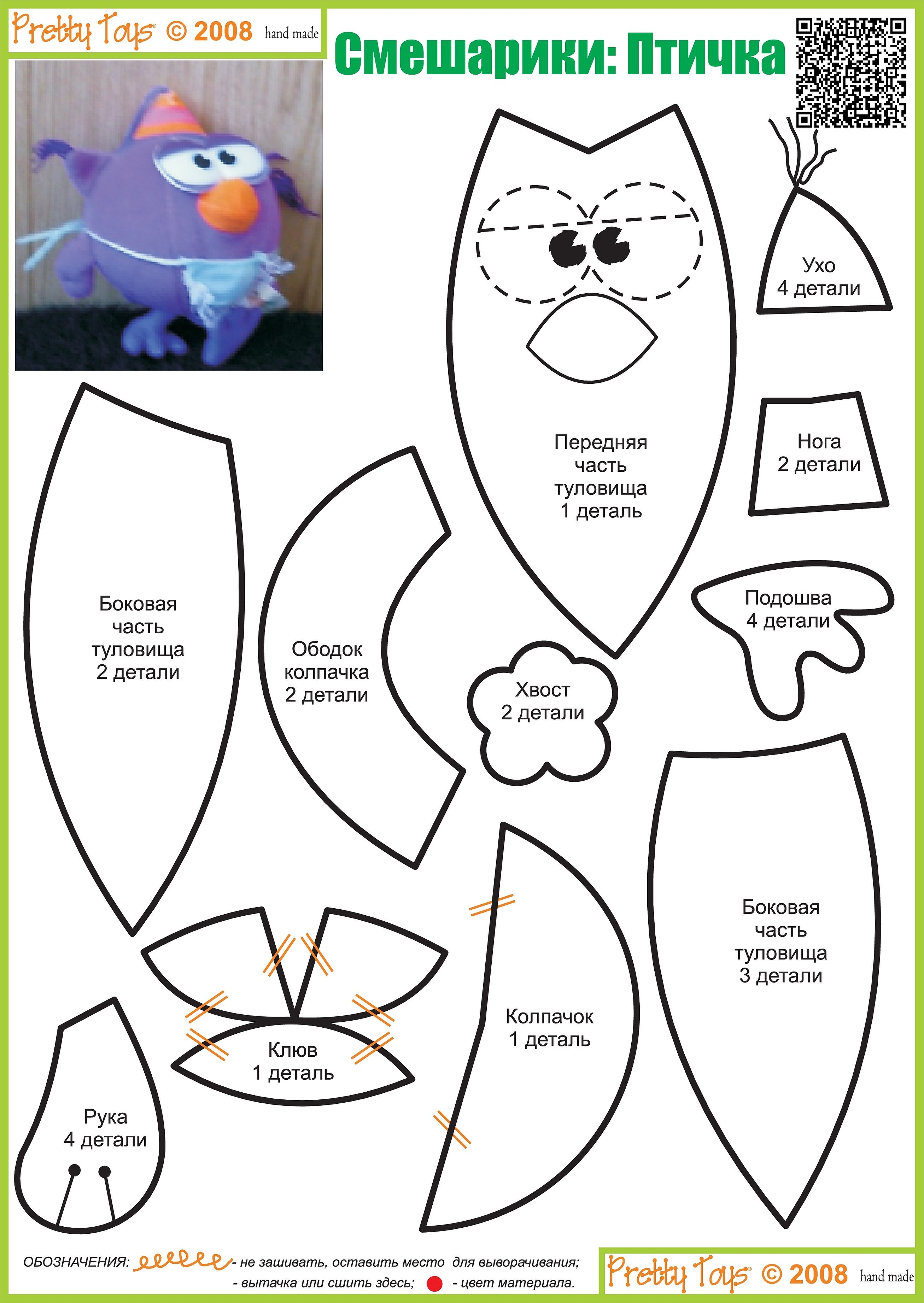
A DIY panda pillow made using a pattern will become a rare addition to a room with plant motifs.
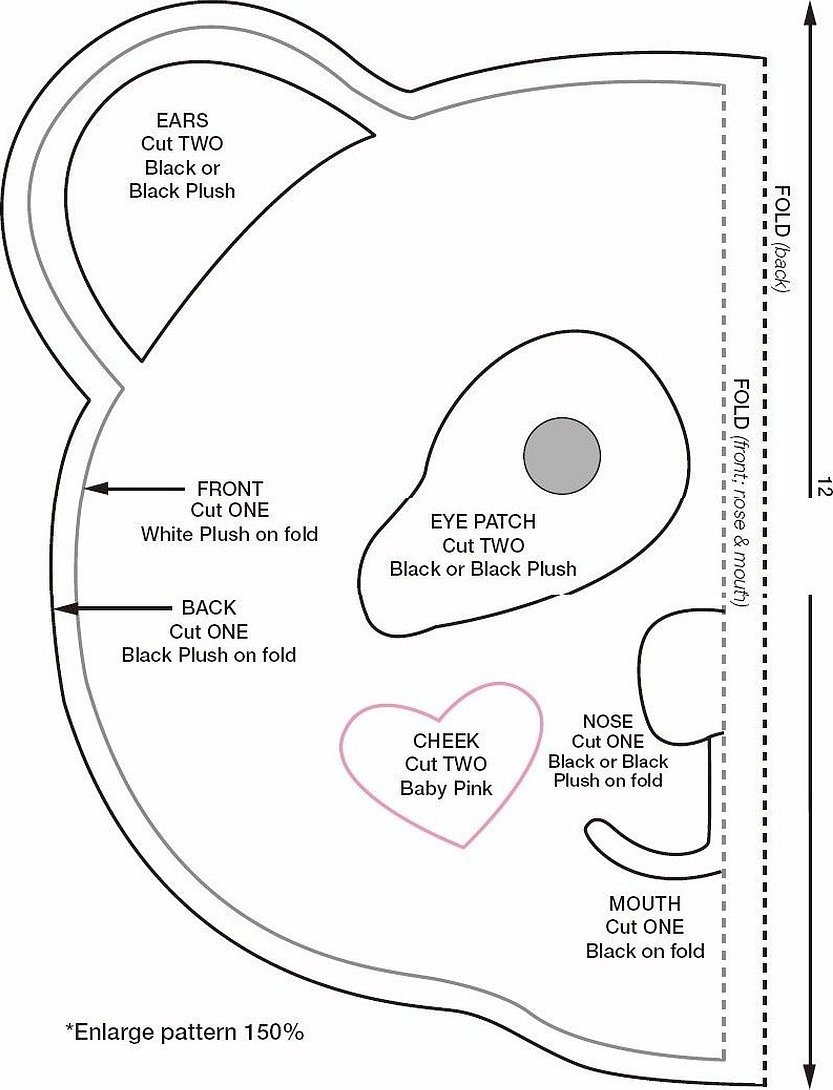
Also, when creating toy pillows with your own hands, you can come up with original patterns.
Stuffing
Soft natural pillow fillings (wool, feathers, down) have a number of disadvantages:
- They don't hold their shape well.
- They provoke the development of allergies.
- High price range.
- They collect dust and require systematic cleaning.
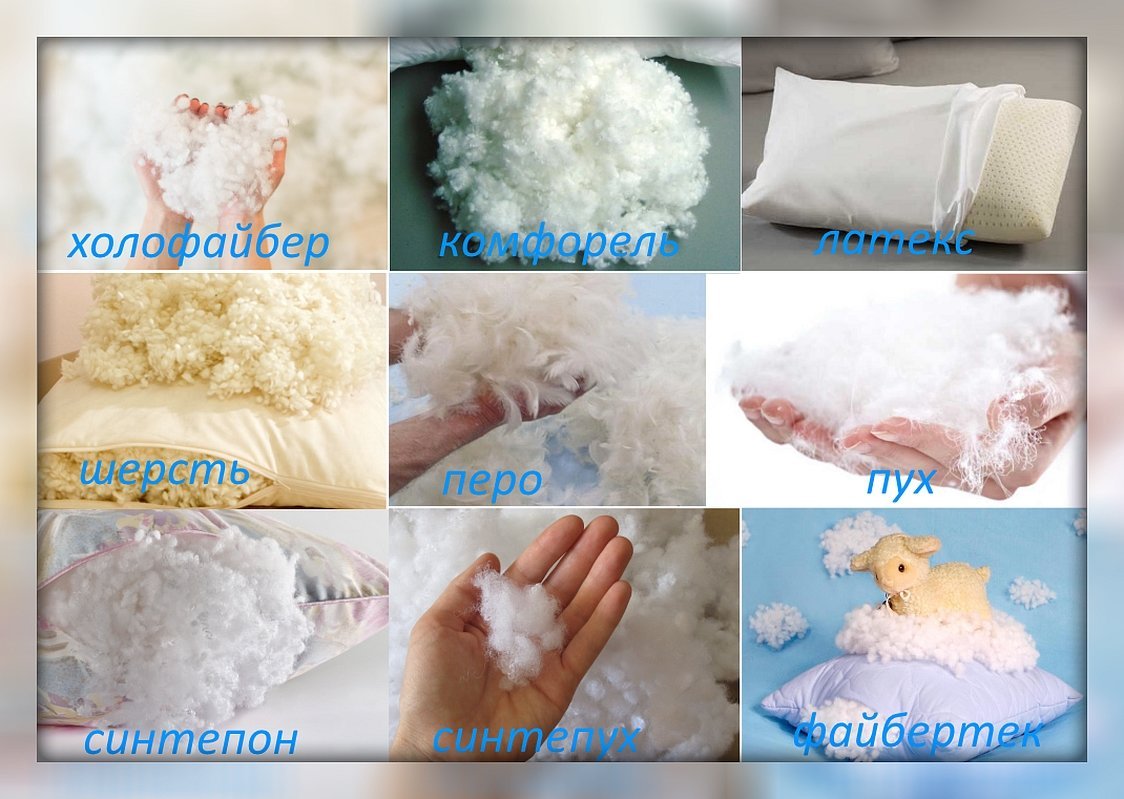
The best choice is artificial materials:
- Hollowfiber.
- Comforel.
- Silicone.
- Synthetic fluff.
- Polystyrene foam.
Reference! Inexpensive synthetic padding is a bad choice (due to its low elasticity, it quickly gets lumpy).
Unusual fillers, such as buckwheat husks and cherry pits, have the following characteristics:
- Absolutely natural.
- They are hypoallergenic.
- Noisiness.
- Not available for washing.
- They have low orthopedic properties
Herbs give a unique aroma to the pillow and have a service life of one to two years.
Fillers can be orthopedic (latex, viscoelastic foams, polyurethane foam).
Methods of decorating pillows
Decorating a pillow is a complex and exciting activity. Here are some finishing options that even a novice craftsman can handle.
Attention! It is more convenient to decorate the front fabric of the product before sewing it to the back side.
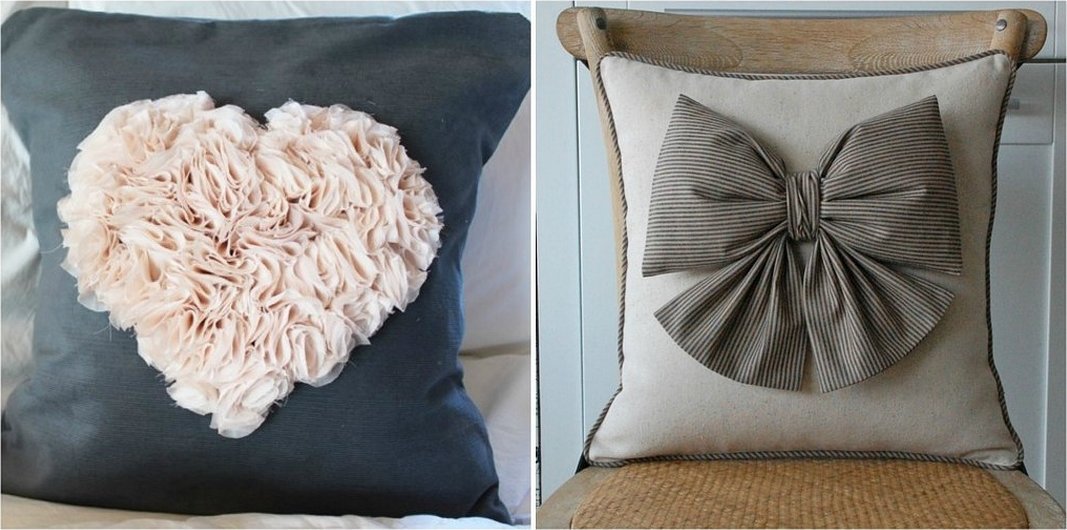
Using bows
Accommodation options:
- Corner of the pillow.
- In the middle.
- At an angle.
- Similar to the gift (criss-cross).
- Make it a butterfly by embroidering the antennae.
Manufacturing: tie a ribbon neatly or 3 pieces of fabric (connect the bow and tails with a belt loop).
Relevant in interior styles:
- Provence.
- Vintage.
- Country.
Placement of frills
How to place ruffles:
- Sew a strip of fabric (1.5 times the required length, edges trimmed).
- Pull the string.
- Make the folds even.
Applicable to Rococo interiors.
Idea! A frilled flower will perfectly decorate a pillow.
Decor with flowers
How to make such decor:
- Cut an old T-shirt into strips.
- Fasten them in a circle.
Decor with embroidery
Sashiko embroidery is simple, with large stitches repeating the outline of the design.
Decorating with ribbons is possible (the direction of attachment depends on your imagination)
Applications
You will need:
- Colored scraps of fabric (you can cut up something old).
- A drawing transferred onto tracing paper.
- You can buy overlays specifically for creating masterpieces - the base is adhesive.
- Felt is suitable for producing appliques based on silicone glue.
- Special tape for applique.
- Threads (sew the patches using a zigzag stitch on a sewing machine, or by hand using a loop stitch).
- Buttons (instead of pieces of fabric).

The themes of the masterpieces are varied:
- signs of the zodiac;
- children's drawings;
- names of the room occupants;
- animals;
- hearts;
- insects;
- flowers.
This article presented options for pillows for every taste, how to sew pillows toys with your own hands, based on the article you can easily create something unique, inimitable, functional and simply beautiful.

